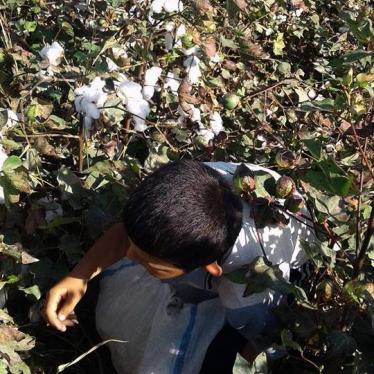When things go wrong with World Bank Group’s projects, it is often members of the community impacted who expose these problems. But they do so at their own risk. Finally, one of the bank’s accountability bodies is taking steps to make it safer for such members when they speak out.
Here’s why this move is so important: When a Cambodian villager filed a complaint about a World Bank Group project, a government official allegedly said, “Don’t be too strong in your advocacy, otherwise you may end up in prison.”
“I was afraid,” the community member said, “but felt I had to continue, because I was doing the right thing.”
This echoes other findings we documented in a 2015 report on whistleblowers in bank-financed projects. In 18 of the 34 cases we looked into, people who complained said they had been threatened or faced retaliation that they believed was linked to their concerns about the project. We found the bank does little to make sure it is safe for people to share their views about projects, and to prevent retaliation against these people.
Last week, the Compliance Advisor Ombudsman (CAO), the independent body within the World Bank Group’s private sector lending arm, the International Finance Corporation, published an “approach” outlining how it will work to prevent and respond to threats and reprisals. This is after the Inspection Panel – the accountability body for the bank’s public sector lending arms – released in March 2016 guidelines to reduce retaliation risks.
These efforts to make it safer for people to expose problems in World Bank projects are welcome, as are pledges from other international financial institutions’ accountability bodies to follow suit. Still, the CAO approach does not describe actions it will take in partnership with people who are retaliated against.
The World Bank and other financing institutions, which have far more power to prevent and respond to reprisals than their accountability bodies, should commit to taking stronger actions themselves. The Dutch development bank, FMO, which published a position statement on human rights that addresses human rights defenders last month, is the only financing institution to have overtly tackled these issues.
The World Bank says that it takes “all reports regarding harassment of independent monitors very seriously.” It should back up these words by working with its clients to make sure it’s safe for people to share their views about its projects, monitoring for threats, and responding strongly whenever reprisals occur.
|
Dispatches
World Bank Accountability Body Addresses Attacks on Critics
Bank Should Make it Safe for People to Share Views
Your tax deductible gift can help stop human rights violations and save lives around the world.
Most Viewed
-
December 15, 2024
Sudan: Fighters Rape Women and Girls, Hold Sex Slaves

-
November 8, 2017
“Everyone Blames Me”

-
April 9, 2025
South Sudan: Incendiary Bombs Kill, Burn Civilians

-
December 14, 2017
“They Were Men in Uniform”

-
August 29, 2024
South Korea’s Digital Sex Crime Deepfake Crisis





